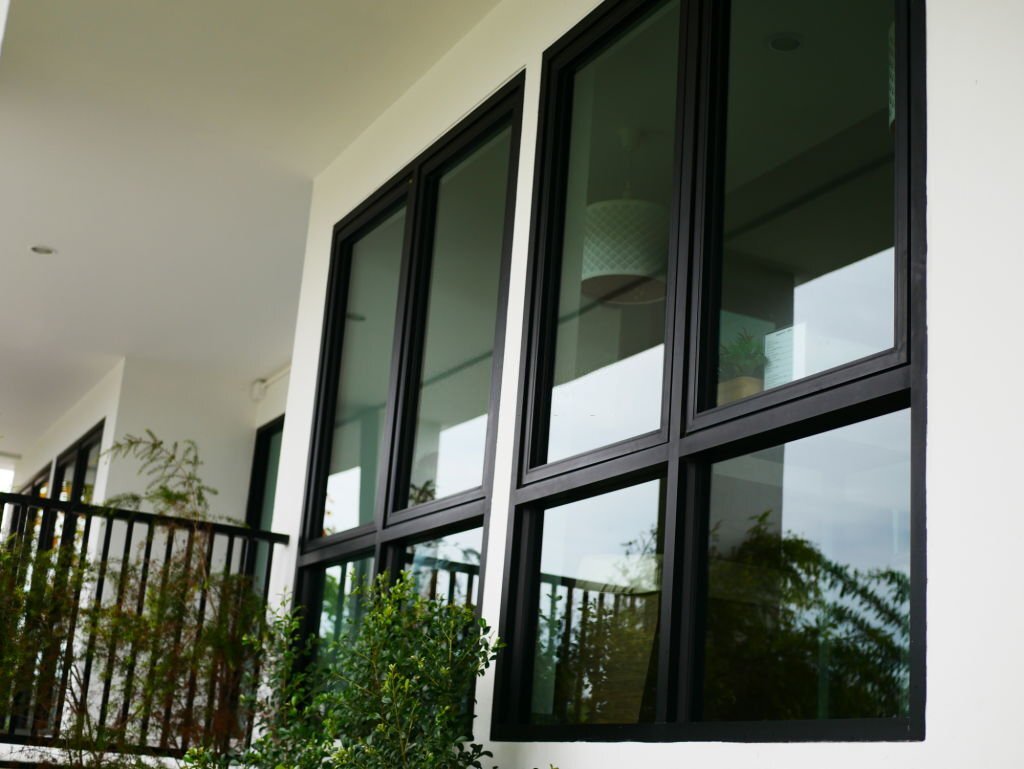Leading Benefits of Putting Up Residential Window Tint for Your Residential or commercial property
Leading Benefits of Putting Up Residential Window Tint for Your Residential or commercial property
Blog Article
Exactly How Residential Home Window Tinting Boosts Your Home's Power Efficiency
Residential window tinting presents an engaging solution for property owners seeking to boost power efficiency within their living areas. By using specialized movies to home windows, it successfully reduces warm transfer, therefore supporting interior temperatures and decreasing the need for too much heating or cooling.
Understanding Home Window Tinting
Comprehending home window tinting is vital for homeowners seeking to improve both comfort and energy effectiveness in their living areas. Residential Window Tint. Home window tinting involves the application of a thin movie to the inside or outside surface area of glass windows. This film can considerably regulate the amount of sunlight and warmth that goes into a home, thus affecting interior climate conditions
There are numerous kinds of window tinting movies available, each with distinct residential or commercial properties. The performance of home window tinting is often determined by its Visible Light Transmission (VLT) percent, which suggests how much light can pass through the movie.
Advantages of Power Efficiency
Home window tinting not only enhances visual appeals yet likewise plays a significant role in improving energy efficiency within residential spaces. By decreasing warm transfer via home windows, tinted movies develop a much more secure interior environment, which can bring about significant reductions in energy consumption for cooling and heating. This power effectiveness converts into reduced energy expenses, supplying homeowners with considerable lasting savings.

Additionally, home window tinting improves the comfort of living areas. By decreasing glow and blocking unsafe UV rays, colored home windows develop a more positive environment, which can bring about enhanced health for passengers. The security versus UV rays also aids preserve furniture and floor covering from fading, adding to the long life of home items.
Just How Tinting Functions
Tinting movies run through a combination of innovative products and technologies created to manage the amount of solar power getting in a home. Largely composed of polyester, these films commonly integrate metallic or ceramic particles that take in and show warm. This dual capability enables them to dramatically lower the penetration of ultraviolet (UV) rays and infrared radiation while permitting visible light to go through.
The effectiveness of window tinting is gauged by reference its solar warm gain coefficient (SHGC), which indicates just how much solar energy is transmitted via the home window. Reduced SHGC worths are better as they signify greater heat being rejected. In addition, window colors can include a selection of tones, permitting homeowners to customize their visual preferences while enhancing energy performance.
Moreover, these movies work as an obstacle, avoiding heat loss during cooler months by mirroring interior warmth back into the living area. This thermal insulation impact complements the cooling advantages gained throughout warmer months, contributing to a well balanced indoor environment year-round. By handling solar energy effectively, domestic home window tinting not only improves convenience however additionally plays an important role in decreasing power usage and decreasing energy costs.
Selecting the Right Tint

There are numerous kinds of home window films available, including colored, metalized, and ceramic. Ceramic movies supply superb heat control without jeopardizing visibility and are very sturdy, making them a prominent option.
Visible light transmission (VLT) is an additional important factor, as it suggests the quantity of natural light that can go through the colored glass. Homeowners need to select a color with a VLT that matches their lighting preferences while still offering adequate glare decrease.
Furthermore, analyzing the solar warm gain coefficient (SHGC) can help figure out how well a color can block heat from sunlight. A lower SHGC indicates much better heat control, eventually enhancing energy efficiency.
Installment and Upkeep Tips
Appropriate installment and upkeep are vital elements in making best use of the benefits of property window tinting. Experts likewise use specialized tools and methods, which can improve the sturdiness and performance of the tint.
Adhering to setup, upkeep is vital to extend the life of the home window film. It is advised to wait at the very least 30 days prior to cleaning up the colored windows to permit the sticky to heal completely.
Dealing with these issues quickly can prevent more damages and maintain power efficiency. By sticking to these setup and upkeep pointers, property owners can official statement guarantee their window tinting proceeds to supply significant power cost savings and convenience for years to come.
Final Thought
In final thought, household home window tinting offers as a reliable remedy for boosting energy efficiency within homes. By reducing warm transfer and obstructing harmful UV rays, window films contribute to lower energy look at this web-site consumption and enhanced indoor comfort.
Window tinting involves the application of a slim film to the inside or exterior surface of glass windows. By minimizing warmth transfer through windows, tinted films create a more secure interior climate, which can lead to considerable reductions in energy usage for heating and cooling.The effectiveness of home window tinting is measured by its solar warm gain coefficient (SHGC), which suggests how much solar energy is transmitted through the home window. By taking care of solar energy effectively, household window tinting not only enhances comfort yet additionally plays a crucial function in lowering energy usage and reducing energy bills.
By reducing warmth transfer and obstructing damaging UV rays, home window films add to lower energy consumption and improved interior comfort.
Report this page